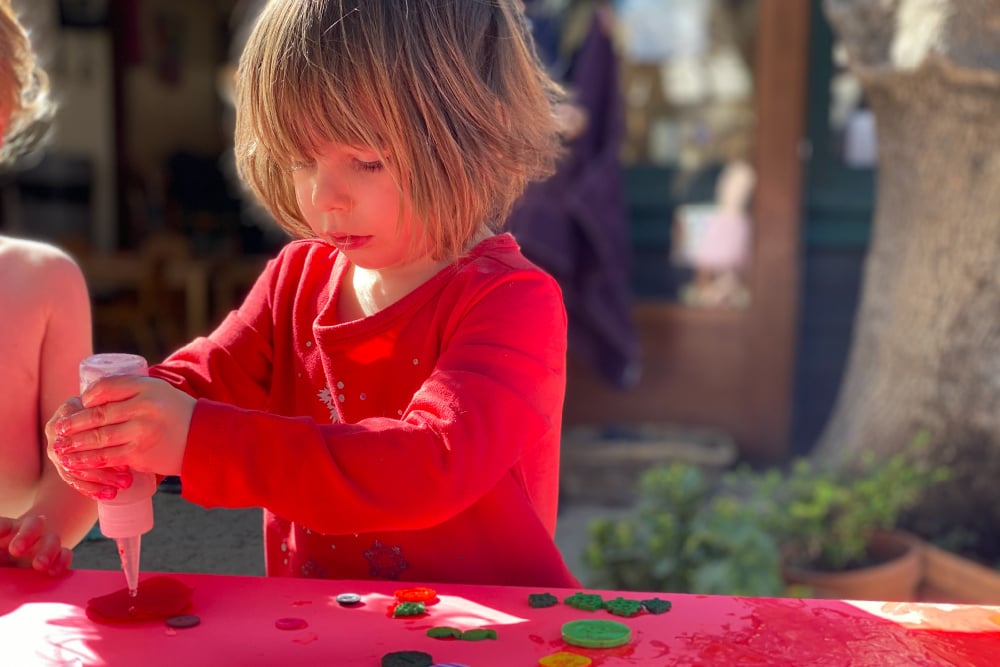
We provide a fertile place for young children’s curiosity and imagination to thrive. Exploration and play come naturally to children, so we build upon this to teach them social skills and prepare them to become lifelong learners. It’s play with an educational purpose. We encourage children to speak up for themselves, ask questions, and make decisions—to stretch their minds and have fun learning together. Our curriculum is “emergent,” meaning that teachers use the particular interests of children in the class. This remains a constant feature across all our programs.
Learning By Doing
We recognize that children learn best through direct experience. We practice a progressive philosophy by providing abundant opportunities for experiential learning—an active process that arises out of interactions among children, adults, and materials.
At the core of our programs, self-directed play and exploration of materials allow for cooperative social interaction and support children’s construction of knowledge about the world around them. Children are encouraged to contribute to the experience by making choices that will guide the day’s activities, as opposed to only following teacher-directed projects.
Peaceful Conflict Resolution
Conflicts among young children are typical in group settings, commonly arising over property, territory, personal space, and exclusion. At Pacific Oaks, we view conflicts as an opportunity to impart valuable learning experiences. Our teachers work to facilitate problem-solving skills that teach children to effectively navigate a social community whether it is the playground, the classroom, or the real world.
We think it is important to provide children with skills to navigate challenges such as conflicts, and through applying these skills, children learn to see and respect another’s point of view and use language as an effective communication tool—clearly expressing their needs, wants, emotions, and thoughts. They learn to constructively handle conflict and cope with frustration and disappointment with resiliency. They also learn to anticipate how others might react to their behavior and use that information to make choices about how they approach a situation.
Anti-Bias Education
A good education helps children build understanding and respect for differences of all kinds. From the very beginning, we create an environment where children value who they are and also respect the differences they notice in the languages we speak, our family traditions, the abilities we have, and the configurations of our families.
Anti-bias education is not simply a theory. It is part of teaching and learning every day. We encourage children to think critically about differences and bias, as well as encourage them to stand up for themselves and others when situations seem unjust.
At the Children’s School, children see themselves and their families reflected in books, music, and educational materials. We intentionally select books so that diversity and non-stereotypical images are part of children’s everyday experience.
Children learn to be good friends, to express empathy and compassion, to be inclusive of others, and to interact comfortably with people different from themselves. Children begin to recognize stereotypes and unfair assumptions and to challenge bias. We know that today’s experiences set the stage for all that follows.
Learn more about our approach by reading about our five educational pillars.
